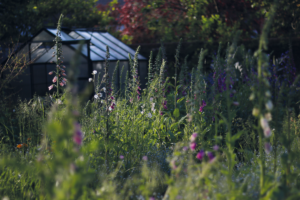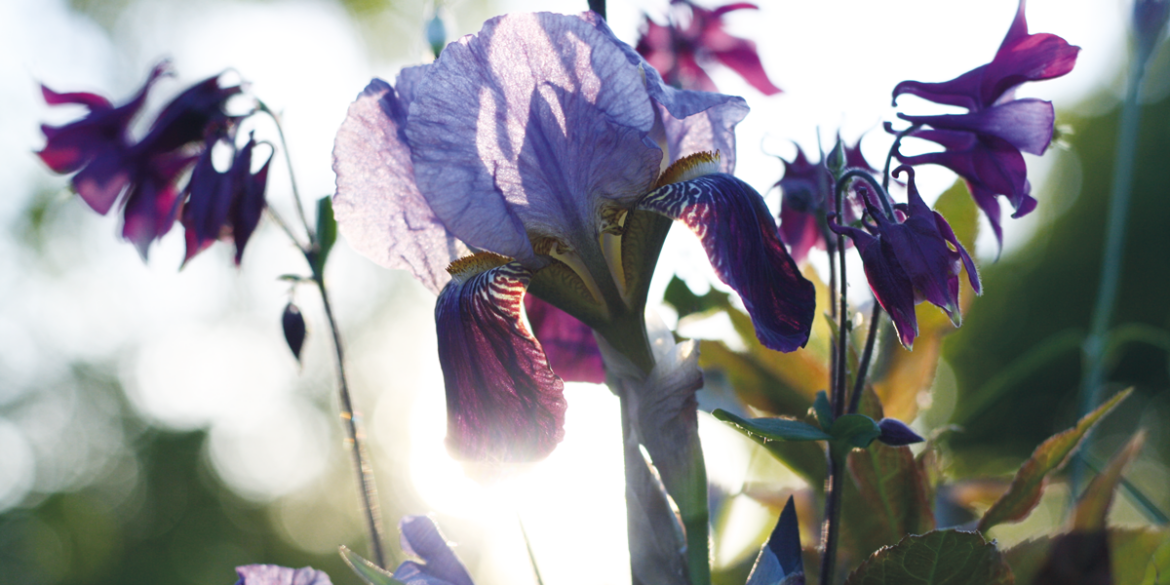Anna Taylor, owner of Anna’s Flower Farm in Audley End, shares what’s going on in the garden this month
May is packed with seasonal markers. Allotments are waking with asparagus and the first new potatoes can be dug up. I adore the heavenly scented lilac overhanging fences while the frothy white cow parsley, hawthorn and elderflower hedgerows mingle with bright green nettles, tender enough to pick (with gloves!). Long, bright days are almost perfectly balanced with cool nights. It’s an easy-going month of bank holidays, paddling at Lammas Land and the Chelsea Flower Show on the BBC. No wonder villages once hosted colourful maypole dancing and flower crowns; this is time to celebrate spring turning to summer.
For flower growers, May is a busy time: last chance for this summer’s beds and vases. After that memorable winter seguing into this slow and cold spring, I’ll prepare for every eventuality by making last sowings under cover, backing up directly into the soil, too. Half-hardy annuals are some of the fastest plants to germinate and grow to flower; the less disturbance, the better. Zinnias, nasturtiums and calendula are great for direct seeding. Rake back the soil, remove large stones and sow in lines or zig-zags, keeping well-watered until they emerge. This way, the seedlings are obvious in contrast to random weed growth.
We are only in May though; with a whole summer of growing ahead – even hardy annuals sown now will bloom and fill borders generously. I will be sowing another bunch of sweet peas, cornflowers, nicotiana with favourite coreopsis and rudbeckias, adding texture to August and September arrangements, where dahlias can be accused of taking over with their huge heads. For something other than those divas, last year I enjoyed multi-stemmed sunflowers in plums, muted pinks and browns. These sophisticated performers gave smaller flowers for months, perfect to cut and arrange with.

Prepare for spring to turn to summer in one of the busiest times of the gardening year
The task I usually leave until too late is staking. I have no idea why, since I have been using jute netting for the last few years and it’s brilliant. We’ve set upright stakes now at different intervals, usually a couple of metres apart and 18in to 2ft high; the netting is stretched across the stakes and stapled where required. It’s a quick job and one that works brilliantly. In the past, I set netting too high, and it was hard to cut flowers. Having the net lower is working for all the plants that need support, especially the tall sunflowers and heavy dahlias that can be broken or rocked in August storms. Staking low ensures strong roots, so upper stems can move freely and, crucially, be easily reached for harvesting.
Finally, if your borders look a little sparse, you might want to prepare now for your 2024 May garden. Late spring flowers are the ultimate delayed gratification. I’d suggest biennials such as honesty, sweet williams and wallflowers to complement spring bulbs. Order the latter immediately and forget all about them until the parcel turns up later this summer. But spring- flowering biennials need to be sown as soon as possible. They need care this summer before planting out in cleared September beds. When there is so much to do this year, sowing for the next one might be low on your priorities – but you’ll be right ahead for 2024 if you do. It is my top tip this month. Best of British to you!
Find out what’s going on at Anna’s Flower Farm this month at annasflowerfarm.com

